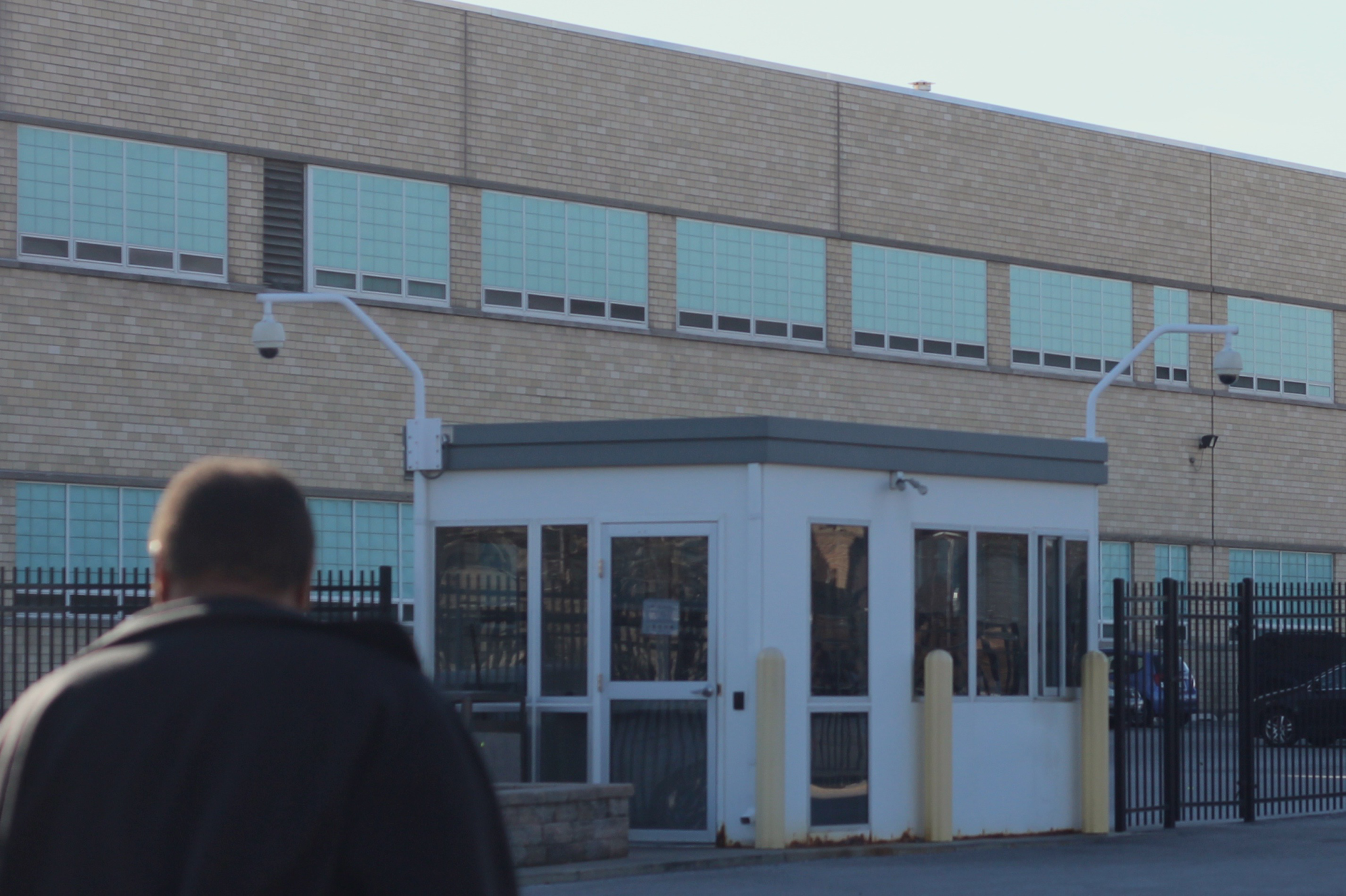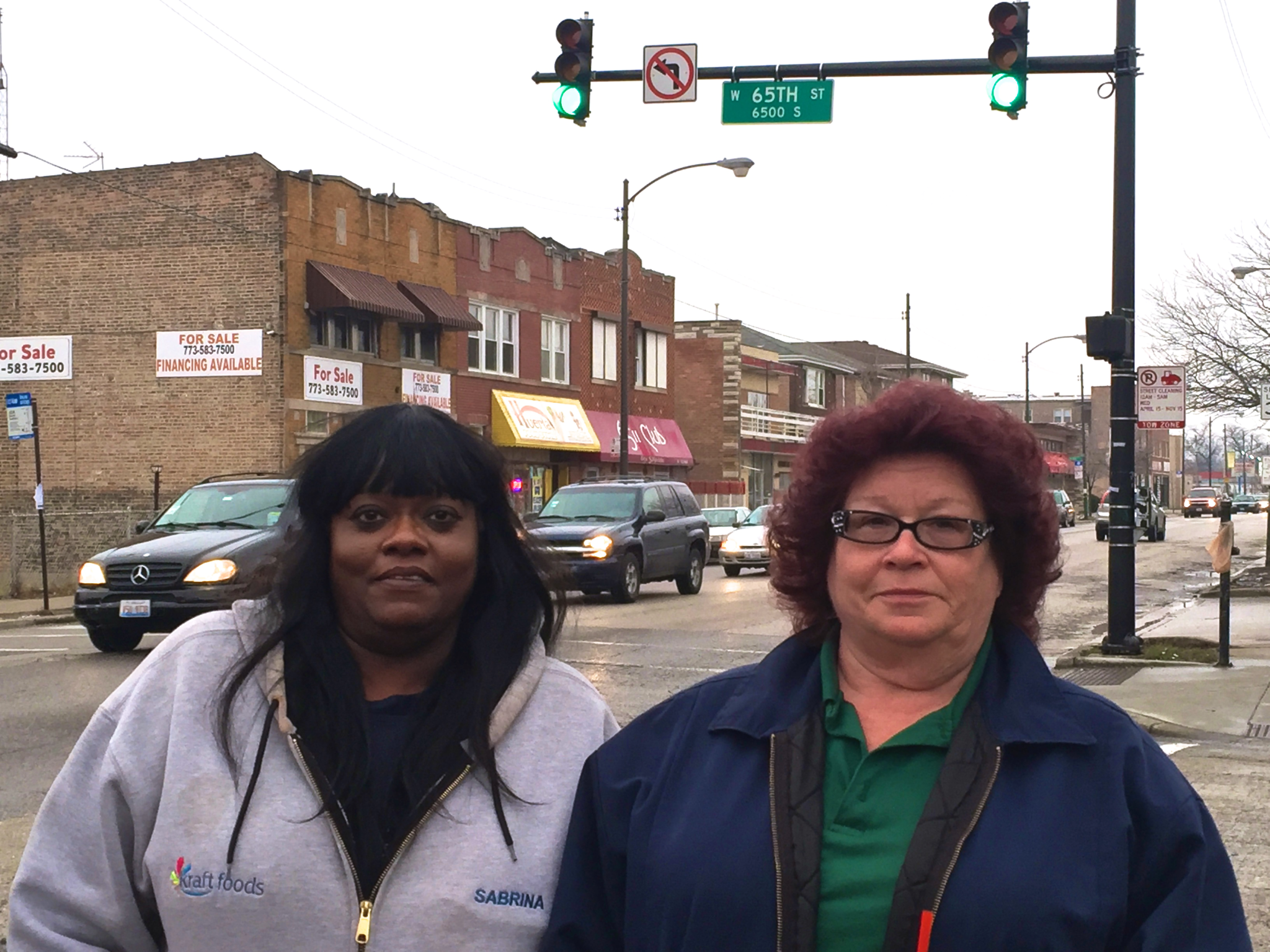Last May, the over one thousand workers at Nabisco’s towering 73rd and Kedzie bakery (their largest in the country) came into work only to discover that up to half of them would be losing their jobs in the upcoming year. The decision came as a shock to the plant’s workers, who’d been expecting to see a $130 million investment in upgrading the Chicago facility. Instead Mondelez, the confectionary, food, and beverage conglomerate of which Nabisco is a subsidiary, plans to put the $130 million toward improving its new facility in Salinas, Mexico.

The Marquette Park facility has been in operation since the fifties—almost anyone who’s lived in the area, walked down Kedzie, or played basketball in Marquette Park can describe the scent of Oreos that has filled the air since its beginnings. In fact, many of the plant’s employees have parents who worked in the bakery for decades before them, and can easily recount enjoyable times they spent on the production lines. Sabrina Pope, an employee for thirty-five years, got a job when her mother encouraged her to apply.
“I’d been working at a state facility and I couldn’t handle the gap between paychecks,” says Pope. “My mom suggested I go over to the bakery and apply. I was in by Mother’s Day.”
Her fellow employee and friend Barbara Cimbalista says that employees used to love their jobs so much that management couldn’t get them to leave.
“It was so great, people wouldn’t go home,” says Cimbalista. “Working overtime, they could do their laundry at the bakery.”
It wasn’t long before Pope and Cimbalista took up more hours and became union stewards with the Bakery, Confectionary, Tobacco, and Grain Millers (BCTGM) Local 300 Union. But when Pope and Cimbalista entered the factory in May, they were immediately split up into separate small groups to be told that they wouldn’t be receiving the state-of-the-art machinery they were promised.
“We really had our hopes up, thinking we’d get all those lines,” says Pope. The unions operating at Nabisco were told that taking the new lines wasn’t enough to avoid a $46 million deficit. “They told us this was a business, and we need to stay afloat,” says Pope. “I said, not on my back!” Pope says that she and the rest of the factory workers were unaware of the size of the alleged deficit.
 “We invited the unions to bring forward any input they had and thoughts they had to address that gap,” said Laurie Guzzinati, a spokeswoman for Mondelez. According to Guzzinati, the input from the union wasn’t enough to convince Mondelez to reverse their decision. Jethro Head and Ron Baker, two representatives from BCTGM International Union, claim that Mondelez gave the bakery’s workers an ultimatum: lose the six hundred jobs, or take a $22 wage cut. “Mondelez proposed that if South Siders wanted to keep their jobs, they’d have to finance it themselves,” says Head. “It was a deal no one would take because it’s damn near nothing.”
“We invited the unions to bring forward any input they had and thoughts they had to address that gap,” said Laurie Guzzinati, a spokeswoman for Mondelez. According to Guzzinati, the input from the union wasn’t enough to convince Mondelez to reverse their decision. Jethro Head and Ron Baker, two representatives from BCTGM International Union, claim that Mondelez gave the bakery’s workers an ultimatum: lose the six hundred jobs, or take a $22 wage cut. “Mondelez proposed that if South Siders wanted to keep their jobs, they’d have to finance it themselves,” says Head. “It was a deal no one would take because it’s damn near nothing.”
Many employees and union members think the solution is obvious: rather than cutting jobs and wages, they think Irene Rosenfeld, CEO of Mondelez, should front the costs herself. According to Crain’s, Rosenfeld took roughly $21 million compensation in 2014.
While the company claims the move will bring financial salvation for employees in other countries, Baker claims the transfer is more complicated than that. The issue isn’t just the removal of jobs from Chicago and into Mexico, according to Baker, but also the continued exploitation of the company’s workers.
“If they were really taking these jobs and moving them to Mexico, then the people working those jobs would have the same wage, the same benefits,” says Baker. “But they won’t, because it’s all about exploiting them. If you want loyal employees, why can’t Mexican employees even afford the products they’re making?” According to multiple media sources, Mondelez has yet to comment on the wages at the Salinas plant at the time of writing.
A question arises, then: why is Mondelez making such drastic cuts to its largest plant, one that produces many of its Nabisco products including Oreo, Chips Ahoy, Nutter Butter, belVita, Ritz, and Wheat Thins, rather than to other facilities such as those in Virginia or New Jersey. Mondelez officials themselves admit that the Chicago facility is “an important part of the network.”
“It’s no coincidence they chose Chicago,” says Baker. “With such a large percentage of the site’s workers being over forty years old, Hispanic and/or African-American…It’s clear that this is discrimination.”
“They think they can do this to us because our workers are minorities,” says Pope.

On December 11, BCTGM filed a grievance with Mondelez, stating that moving the factory jobs to Mexico violates a nondiscrimination clause in their collective bargaining agreement. Ten days later they filed another grievance alleging that the factory’s management has been filling jobs in the union bargaining unit with unaffiliated contract workers in order to tip the scale in their favor before the jobs are officially cut. On January 19, however, 277 employees received pink slips in reverse-seniority order, according to one employee who broke the news on Facebook to current and retired plant workers.
Head, who grew up in Marquette Park and worked in the bakery at a younger age, thinks this is a direct hit to the economy of the neighborhood and the South Side in general.
“I grew up in this area, and I see the South Side change a little bit every time I’m around here,” he says. “But I’ll tell you something—this city don’t need this. The South Side don’t need this kind of exploitation.”
As Chicago has seen in the past, the outsourcing of labor has had a profound effect on the industrial sector of Chicago’s South Side. The closing of the city’s stockyards and steel mills in the seventies affected hundreds of working families, and since then the city has seen some of the world’s largest industries dwindle down to small, scattered plants. It seems likely that the outsourcing of jobs from the Nabisco plant will affect Brighton Park in a similar way.
But even in the face of this damage to their community’s industry, the workers at the plant haven’t given up. Baker and Head are promoting a kind of read-the-label boycott campaign of Oreos made in Mexico, in hopes of pressuring the company to reconsider the decision. Baker claims that at this point BCTGM exists solely to make sure Mondelez “does the right thing.” The union stewards and representatives are joined by supporters like Alderman Derrick Curtis of the 18th Ward in pushing back. Their next stop on the campaign is re-negotiating the BCTGM contract, which expires at the end of February.
“I expect that all six hundred jobs stay here, I expect that we get a raise, and I expect a contract renewal,” says Pope. “We made this bakery. It was made by us and those before us, and we’re not giving up.”
Sabrina Pope (left) and Barbara Cimbalista (right) have been employees at the Nabisco factory on 73rd and Kedzie for decades. As union stewards, they have fought Mondelez’s decision to lay off six hundred workers from the factory.



Stand Proud & United BCTGM!!
Great job, stay strong and be proud!
Awful to hear, not mentioned is the salary in triple digit millions of the president/ceo of Nabisco, hmmm very disheartening.
Hang tough, don’t let this corporation get away with taking anymore jobs out of our country.
I am very sorry to hear about the jobs moving out of the country. I hope that everyone will be able to find similar work for similar pay.
I find it interesting that there is no mention of the actual pay that the workers currently make. How could the company ask for a 22$ an hour pay cut, are they really making more than $22 an hour, if so how much more?
The union should have jumped on the Trump band wagon last August. I still think that is Trump’s success in the polls and Trump’s 3 dozen or more times that he mentioned Modeleze move to Mexico that has caused a delay in the actual layoffs that should have occurred last September. Wake up brothers and sisters! Let’s support a man who supports us instead of ignoring us!
Response to Dan We make $25-$35 /hour depending on the job classification
I am retired from Nabisco and am praying for my former co/workers we all made this company and now they think that they can just turn there backs on good workers. If they want to sell there products in US then they need to be made here